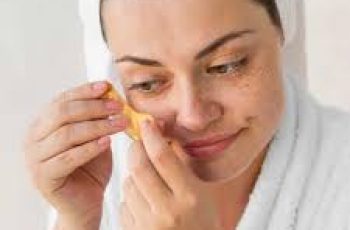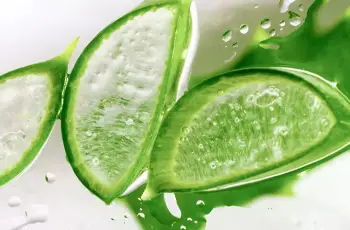
Ask the Dermatologist: Should I Pop My Pimple or Avoid It?
In recent years, there’s been an undeniable rise in the popularity of pimple popping, largely driven by social media and online videos. Dr. Sandra Lee, better known as “Dr. Pimple Popper,” has become an internet sensation with more than 16 million followers on TikTok as of 2024 and over 8 million subscribers on YouTube. What began as an educational and entertaining approach to dermatology has now turned into a cultural phenomenon, where millions of people eagerly watch her videos of extractions and skin treatments. There’s something strangely satisfying about the process of removing a pimple, whether you’re the one doing it or simply watching it unfold on your screen. But what about those moments when you’re standing in front of the mirror, faced with the temptation to pop your own pimple? Is it ever a good idea to pop that pesky blemish, or should you always resist?
The Pimple Popper Phenomenon: Is It Just for Fun?
As anyone who has watched Dr. Lee’s videos can attest, there’s an oddly therapeutic element to watching pimples being popped. Whether it’s a satisfying release of pressure or the aesthetic gratification of clearing up the skin, the popularity of pimple popping videos has continued to surge. The appeal isn’t just limited to Dr. Pimple Popper’s famous online presence, either. Countless Instagram, TikTok, and YouTube creators have adopted similar content, providing hours of footage for fans to indulge in. But does this mean popping pimples is actually a good idea, or should we leave it to the professionals?
To get some clarity on this subject, we asked our trusted dermatologist, Dr. Anthony Nuara, MD PhD FAAD, to weigh in on the matter. He’s an expert in the field, and his perspective may help clear up some of the confusion.
Understanding Pimples: The Science Behind Them
Before diving into whether or not it’s safe to pop a pimple, it’s essential to understand how pimples form in the first place. Each pore on your body leads to a follicle that contains both a hair and a sebaceous gland, which produces sebum—a natural oil that helps keep your skin hydrated. Sebum, while essential for skin health, can sometimes cause problems when produced in excess. When the excess oil mixes with dead skin cells and other debris, it can clog the pore, leading to a blockage. Bacteria can also accumulate in the pore, causing inflammation, which ultimately results in a pimple.
Pimples are commonly seen as one of the many symptoms of acne, but it’s important to note that pimples and acne aren’t exactly the same thing. Acne is a chronic, inflammatory skin condition, whereas pimples, also known as comedones, are just one manifestation of that condition. Pimples can present as either open comedones (commonly known as blackheads) or closed comedones (which are whiteheads). While pimples can appear anywhere on the body, they’re most frequently found on the face, chest, shoulders, and back.
Should You Pop Your Pimple? The Pros and Cons
When you have a pimple that’s swollen, red, and topped with a whitehead, the urge to pop it can be incredibly strong. However, before you reach for your fingers or any sharp objects to pop that pimple, it’s important to weigh the potential benefits and risks.
The Cons of Popping Pimples
Despite the allure of popping a pimple for immediate relief, the practice is fraught with risks. Here are some of the major drawbacks:
Spread of Bacteria: Our hands and fingernails carry a significant amount of bacteria, and when you pop a pimple, you’re introducing these bacteria into the wound, which can lead to further infection or even the formation of more pimples.
Permanent Scarring: Squeezing or picking at pimples can damage the skin and result in scarring, particularly if the pimple is deep or cystic. Even if it doesn’t scar immediately, picking at pimples can lead to long-term skin discoloration and textural irregularities.
Delay in Healing: The skin’s natural healing process is incredibly effective when left uninterrupted. Popping pimples, on the other hand, can disrupt this process and actually prolong the time it takes for the blemish to heal.
Increased Inflammation: When you force a pimple to pop, you’re likely causing more inflammation. This means that the pimple may become even more inflamed, red, and swollen, making it more noticeable and harder to treat.
Regret: It’s not uncommon for people to pop their pimples in a moment of frustration, only to regret the decision later on. The temporary satisfaction of popping a pimple is often followed by feelings of guilt and disappointment when you realize that you’ve made the situation worse.
Is There Ever a Good Reason to Pop Pimples?
While the risks of popping pimples far outweigh the benefits, there are a few rare occasions when it might be acceptable—though this should be done with caution. The main “pro” of pimple popping is the immediate satisfaction you get from seeing the pimple drained of pus, especially if the pimple has a visible whitehead. This sense of relief can be very compelling, but it’s not worth sacrificing the health of your skin for a brief moment of gratification.
Expert Dermatologist Advice: What to Do Instead
Dr. Anthony Nuara recommends that, whenever possible, you should resist the temptation to pop pimples. The truth is, most pimples will resolve on their own if you simply leave them alone and allow your skin to heal naturally. The best course of action is often to let the pimple run its course, which typically takes anywhere from three to seven days. Of course, deeper or cystic pimples may take longer to heal, but even then, popping them is not the solution.
If you absolutely must address a pimple, ask yourself if it’s even ready to pop. If the pimple is deeply embedded in the skin and lacks a visible whitehead, don’t attempt to pop it. Popping a pimple that’s still under the surface can push the contents deeper into your skin, causing more inflammation and spreading bacteria to the inner layers, which can only make things worse.
Instead of focusing on trying to pop pimples, Dr. Nuara suggests that the key to managing acne is prevention. The goal should be to minimize the formation of future pimples by following a proper skincare routine that focuses on keeping the skin clean and balanced.
Recommended Skincare Products for Acne-Prone Skin
If you’re prone to acne or pimples, it’s important to use products that help prevent future breakouts while promoting skin healing. Dr. Nuara recommends the following ingredients and products as effective treatments for acne-prone skin:
Night Renewal Cream: Retinoids, such as granactive retinoid found in this cream, are incredibly effective at preventing clogged pores, which are the primary cause of comedones. Retinoids also promote collagen production, which can speed up the healing process for existing pimples and reduce the appearance of scars.
Niacinamide Lotion 10%: Niacinamide is a potent anti-inflammatory that helps control the production of sebum (oil) on the skin. This ingredient not only helps to prevent acne flare-ups but also fades hyperpigmentation caused by previous breakouts.
Azelaic Acid 14% Cream: Azelaic acid is an antimicrobial and anti-inflammatory agent that helps keep pores clean, reduces the growth of acne-causing bacteria, and prevents the formation of whiteheads. It also combats hormonal acne by balancing hormone-related oil production in the skin.
Hyaluronic Acid Lotion: This ingredient is a humectant that draws moisture into the skin, promoting hydration and aiding in the healing of acne lesions and scars. It can also prevent the skin from becoming too dry or irritated, which is important for managing acne.
These products work synergistically to support acne-free skin without the need for invasive treatments like pimple popping. When layering these products, Dr. Nuara recommends applying the thinnest products first and working your way up to thicker ones for maximum effectiveness.
Safe Pimple Popping Techniques
While Dr. Nuara strongly advises against popping pimples on your own, he acknowledges that some people may be unable to resist the urge. If you do decide to pop a pimple, it’s essential to do so with caution. Dr. Nuara recommends using two cotton swabs to gently apply pressure around the pimple to encourage the contents to come out. Never use your fingers, as they can transfer bacteria, and never apply force—if blood appears, stop immediately, as this indicates the pimple is too deep to pop.
Alternatives to Popping Pimples
If you can’t resist the temptation to address a pimple, there are safer alternatives to popping that can help. For instance:
Salicylic Acid Treatment: Salicylic acid is a common treatment for acne, as it helps to exfoliate the skin and clear out clogged pores. Applying a patch or topical treatment with salicylic acid can help reduce inflammation and promote healing.
Warm Compress: Holding a warm (not hot) compress against the pimple can help loosen the pus and encourage it to drain naturally. This should be done gently and should not be forced.
Stay Away from the Mirror: It’s easy to get caught up in the habit of picking at pimples, but limiting your time in front of the mirror can reduce the temptation.
Consistent Skincare Routine: Use acne-fighting products regularly to prevent future pimples from forming. Keeping your skin clean and balanced can greatly reduce the chances of breakouts.
Common FAQs About Pimple Popping
Is it safe for a dermatologist to pop pimples?
Yes, a board-certified dermatologist can safely remove pimples without the risk of scarring or infection. Dermatologists are trained to perform extractions in a sterile environment and can also inject medication to reduce inflammation in large pimples.
Should I pop a pimple if it’s white?
If a pimple has a visible whitehead, it is generally safer to pop than a deeper pimple. However, it’s still better to wait it out or use an alternative treatment like a patch or warm compress.
How do pimples heal if you don’t pop them?
If left alone, pimples usually heal within 3 to 7 days. Deeper cysts may take longer, but they often heal without significant scarring.
Does popping pimples cause more pimples?
While popping a pimple doesn’t directly cause more pimples, it can aggravate the current breakout by introducing bacteria, causing inflammation, and prolonging the healing process.


